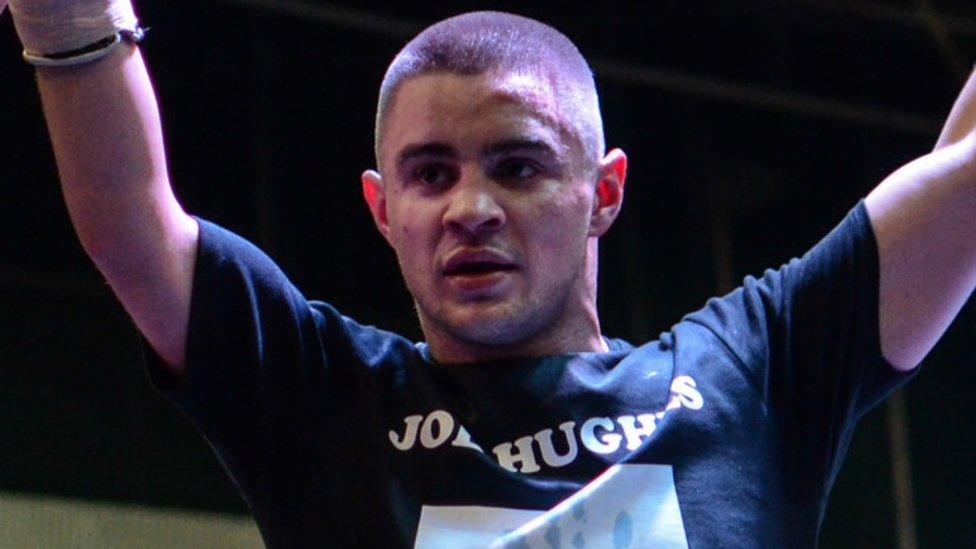Bristol team behind device sparing babies from shoulder injury
- Published
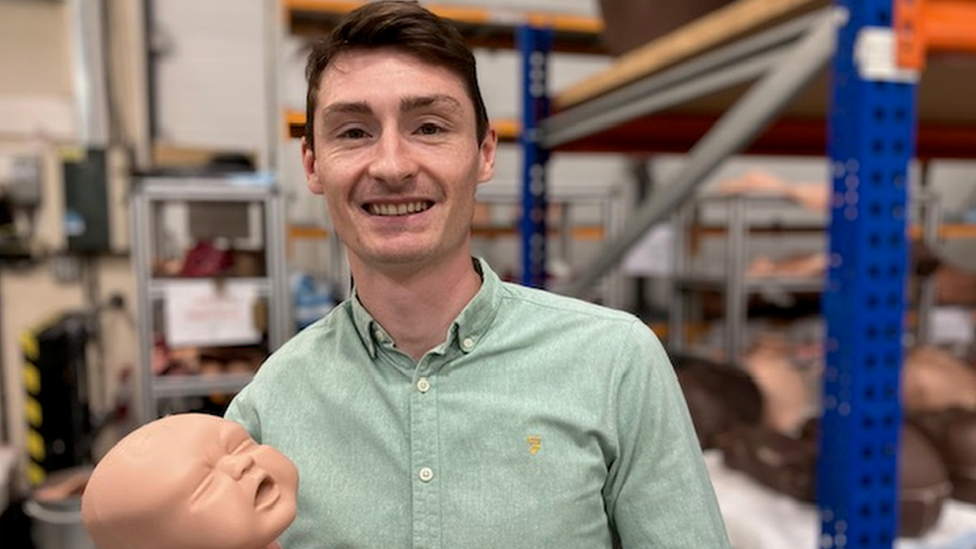
Phil Barker competed for Great Britain in paratriathlon after years of rehab following shoulder dystocia
A hospital where midwives and doctors are trained to deal with shoulder dystocia using a mannequin believe no babies have suffered permanent injuries since training began.
North Bristol NHS Trust was the first in the world to use the Bristol-based Limbs & Things' model.
Shoulder dystocia is when a baby's shoulder becomes stuck during delivery.
Bio-scientist Philip Barker now designs the training products that may have stopped his own injury at birth.
The 32-year-old said: "I feel like this was meant to be."
Mr Barker, from Bristol, suffered severe nerve damage to his right shoulder and arm, leading to a condition called Erb's Palsy.
Depending on the severity of the nerve damage, the weakness and paralysis may last for days, months or life.
In Mr Barker's case, he was left with no movement in his right shoulder and arm.
He embarked on years of physiotherapy, occupational therapy and surgery - including subscapularis release, tendon and muscle grafts and experimental rotational surgery of the one of the bones in his forearm.
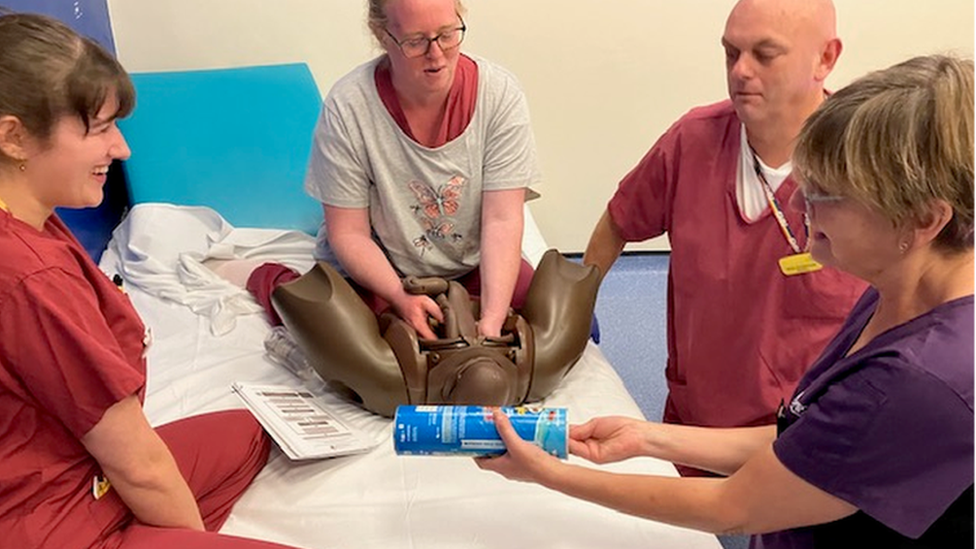
Consultant obstetrician Dr Joanna Crofts in a training session with the mannequin
"Erb's Palsy is a life changing condition for the child and family," Mr Barker said.
"There are several surgical options available, including nerve grafts and muscle releases that can result in significant improvement of the strength and mobility of the arm.
"But even with the surgical treatments, weekly physio and occupational therapy can often be required in the child's early years.
"While many make a full recovery, a large proportion will be affected for life."
Mr Barker was able to recover fully and went on to compete for Great Britain in paratriathlon.
After graduating from the University of the West of England with a degree in biomedical sciences, he went into teaching in Brighton and then into medical device product management.
In 2020, he moved to Bristol with his wife Martha and saw a job advert for product manager at Limbs & Things. After landing the post he helped design a device that could have prevented his birth injury.
Limbs & Things developed a device called the PROMPT Flex trainer - an anatomically realistic birthing model which allows maternity healthcare professionals to practice the correct actions to avoid injury after shoulder dystocia.
It was developed in partnership with healthcare professionals in Bristol.
The national guidelines and training in the UK for managing shoulder dystocia are based upon the PROMPT Flex trainer, and there is evidence that training staff to use the correct manoeuvres can reduce the incidence of injuries following shoulder dystocia.
Mr Barker said: "For some, Erb's Palsy can have severe impact on their quality of life, it can make daily tasks such as washing, cooking, driving and dressing difficult, impossible for some.
"Another side that is often forgotten about is the mental impact traumatic deliveries can have on parents.
"The stress, aftercare, and often perceived guilt from the birth can lead to postnatal PTSD and other mental health issues."
Earlier this year, Mr Barker and his wife welcomed their own baby, Phoenix, born at Southmead Hospital in Bristol, the first hospital to develop shoulder dystocia training for midwives and doctors using the PROMPT Flex trainer.
Dr Joanna Crofts, consultant obstetrician and specialist lead for the project said: "Our training is all about how we use specific manoeuvres to stop the staff pulling and to gently and safely deliver the baby."
She said they started using the device in 2000.
"We found that once training had been implemented for many years we didn't have any babies permanently sustain injuries," she said.
"Those results are replicated around the world."

Follow BBC West on Facebook, external, X, external and Instagram, external. Send your story ideas to: bristol@bbc.co.uk , external
- Published12 March 2013
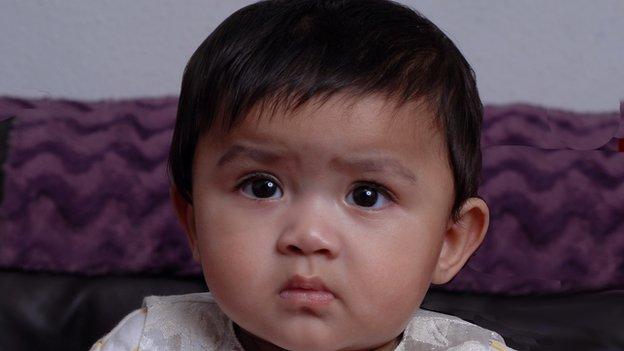
- Published9 March 2020
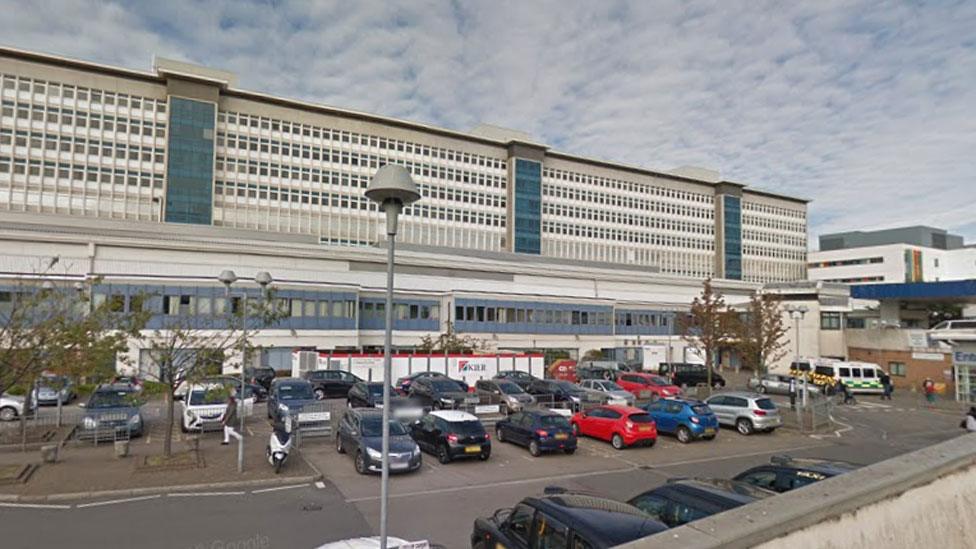
- Attribution
- Published13 May 2016
